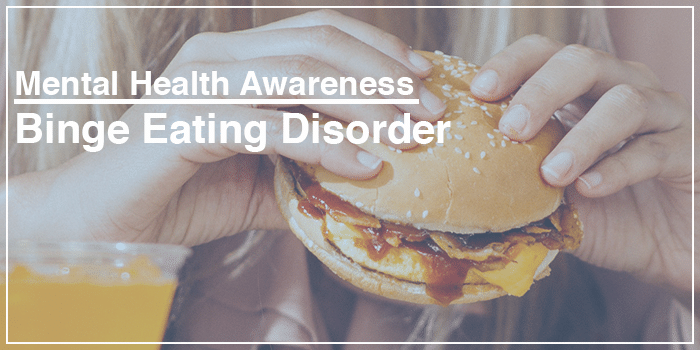 5-star Fitness
5-star Fitness
 5-star Fitness
5-star Fitness

May is Mental Health Awareness Month, and at PFC, we believe that mental health is a crucial component of one’s overall physical health and wellbeing. Often times, one’s weight is an outer representation of inner issues, such as repressed emotions, low self-esteem, and an accumulation of stress. If you are an emotional eater, then it’s likely that you are reaching for food as a means to self-sooth and cope with uncomfortable inner emotions such as boredom, loneliness, anger, sadness or anxiety. Food may offer temporary relief from these emotions, as food does release feel-good chemicals in the brain (serotonin and dopamine) and gut that does produce a feeling of happiness and relief; however, these sensations are short lived. After you’re done eating, the initial problems and feelings remain except now you have the additional problem of having eaten too much along with all the guilt and shame that comes with it. For some people, this maladaptive pattern of coping with emotions by eating food can spiral out of control and become an eating disorder called Binge Eating Disorder (BED).
Many people identify as emotional eaters, but less identify as binge-eaters due to a lack of clarity of what that term means. Many people are also unaware that their problematic eating behaviors are symptoms of a greater mental health condition. Here are clues that you or someone you know may be struggling with BED, according to the diagnostic criteria outlined in the Diagnostic and Statistical Manual of Mental Disorders (DSM-5):
• Individuals with Binge-Eating Disorder have recurrent binge episodes on average at least once/week for at least 3 months. A binge is characterized by:
A) eating an objectively large amount of food (usually 2-3 times greater than what most people would eat) within a discrete period of time.
B) a sense of lack of control over eating (feeling that one cannot stop or control what or how much one is consuming).
• A binge-episode is also associated with at least three of the following: eating more rapidly than normal; eating until feeling uncomfortably full; eating large amounts of food when you’re not physically hungry; eating alone due to embarrassment; feeling disgusted with oneself or very guilty after the eating epsiode.
• Notably, individuals experience extreme distress about the binge episodes afterward. If someone chooses to overeat and enjoys doing so without feeling a loss of control or distress about what and how much consumed, then this would not classify as BED, but simply overeating.
After reading these criteria, you may realize that you have experienced a binge episode occasionally over the course of your lifetime. That’s completely normal and okay. Please do not judge yourself for this. Our society set us up to binge eat by inundating us with images for foods high in fat, sugar and sodium and even encourages this behavior through marketing efforts that glamorize eating large amounts of foods. Plus, most of us have not learned to how to feel and manage our emotions effectively, which results in us choosing to eat to stuff down the feelings rather than facing the pain.
If your eating habits fit the description of binge eating, and you find that you are experiencing these sorts of eating episodes one or more times per week then you may benefit from seeking professional help from a licensed health professional, whether a medical doctor, therapist or psychologist. Recovery from BED requires uncovering the underlying issues that one is using food to cope with, and then learning and implementing more effective emotion regulation and stress management techniques to better deal with inner stress and turmoil. Techniques that have been shown to be effective at treating binge eating disorder are Dialectical Behavioral Therapy (DBT), Cognitive Behavioral Therapy (CBT) and Emotional Freedom Technique (EFT). If you feel really stuck and want someone to talk to, you can always reach out to the THINK team here at PFC. Sarah and Rachel are available for remote sessions to assist you with any mental and emotional health challenges you are facing, including dealing with binge eating.